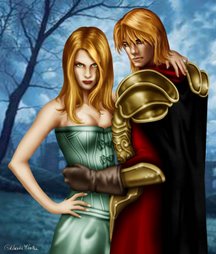On Writing (and reading)
I want to write. I want to be a writer. You cannot be a
writer without getting into the habit of writing, unsurprisingly enough. So I
am starting this journal as an exercise.
I read Stephen King’s “On Writing” ages ago, and was greatly
impressed by the simplicity with which he approached the art of writing. I
started reading it again today, I feel I need the encouragement again. There
was a time when I used to blog and that kept me in the writing habit.
Unfortunately, like so many other things, that habit has been lost in the daily
grind.
Coming back to ‘On Writing’, one thing that is so impressive
about Mr King is his unassuming nature. He does not start lecturing the reader
like a professor or an expert in his field to a novice. There’s none of the
I-know-how-this-is-done-so-you-better-pay-attention stuff. The first thing he
does is write a memoir, childhood memories, and lovely little anecdotes, some
of them fairly creepy too – like the one about the nanny. He calls this section
his C.V., as if he needs to prove his writing chops! And I think this is his
charming way to do two things – firstly, show the reader how its done, rather
than telling her how its done. Because even if you have never read a single word
from Mr King’s numerous, giant bestsellers, these anecdotes sufficiently prove
his skill in the form. He is effortless in evoking a vivid picture of his
childhood, living with his single mom and brother and spending time with his
several aunts. The second one of the things Mr King is demonstrating here is
that great writing doesn’t need to be complex, full of heavy words. Of course,
a good vocabulary is critical to be a writer but don’t over say it. Unless it
adds to the idea you want to express of course. But he does not want to portray
writers who do use more weighty language as pretentious. I think there will be
more on this further into the book, which I don’t recall at the moment.
Maybe there is a third point too. Maybe all writing needs to
be personal.
Reading this section of the book reminded me of my own
childhood, and got me thinking about the beginning of my reading habit. In 1986
we moved to Kalyan, a medium sized town outside of Mumbai, and there, at the
age of 10, I discovered the first library I had ever seen. It does not match
any image of a library that the word concocts in our mind. It was not much more
than a tiny store, but it was chock full of books and that was enough. The
owner and one helper operated this tiny library, and they had a neat little
indexing system which helped them quickly locate the books you asked for. You
looked through a stack of hand-written lists which had the books name, the
author and an index number. There was always a little crowd in front of the
shop, and these index cards would be shared by everyone. When you finished
browsing through a card, you passed it to someone else in the crowd and
exchanged it for the card he was browsing. The catalogue definitely leaned
towards the more popular, but had enough variety that kept me a loyal
subscriber for years. Frankly, it was quaint, but I still remember it fondly.
Starting with Enid Blyton’s Famous Five and Secret Seven and other books,
moving on to the Hardy Boys adventures, and then to Agatha Christie. Then on to
Stephen King, Robert Ludlum as well as Salman Rushdie, Martin Amis and many
others. I would sometimes ask the owner’s opinion on a book, and he was
knowledgeable enough to be able to provide a short but generally useful
comment. He was also partly open to suggestions of books to add to the library,
but economics was definitely a consideration.
Libraries like the Just Books franchises or even book stores
nowadays don’t have the same personal touch to them. You browse the shelves,
sometimes you find books incorrectly categorized and kept in the wrong
sections. The knowledgeable book store or library worker does not exist
anymore. The little library in Kalyan was called Shree Ganesh Vachnalaya
(Library), named after the same god that so many small businesses name themselves
after, hoping that Lord Ganesha, the remover of obstacles will bring them luck.
But though very commonly used by completely unrelated small businesses, Shree
Ganesh is a much more apt name for a library, as the elephant headed god is
also considered a fount of knowledge, the god of intellect and wisdom as well
as a patron of arts. This seems to me a much more meaningful association of
names.
Out of curiosity, I googled Shree Ganesh Vachnalaya and was
overjoyed to see that it still exists. I wish great success to them, and I hope
the kids of Kalyan are utilizing this unique service.












No comments:
Post a Comment